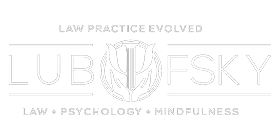Partners facing marital breakdown typically are confronted with deep fears and insecurities that can trigger a wide range of emotional reaction. Divorce often has serious implications in family relationships, finances, daily routines, and can shatter one’s sense of security. Divorce involving children can magnify these challenges as well as pose serious long-term harmful consequences especially for young children.
Unfortunately, our civil justice system, which includes family law courts, has evolved out of an entrenched adversarial model which posits that by encouraging each party to put forth their version of events most zealously, the truth will emerge and a just result will follow. This system largely breaks down when the parties, as they typically are in divorce, are acting largely out of fear-based conditioned reactions that are overwhelmingly emotional in nature.
In additional, traditional legal education teaches attorneys to focus on objective facts and largely ignore any emotional or spiritual component that may underlie a situation being presented by a client in a divorce context.
Holistic divorce law is an alternative to this adversarial model that incorporates the following primary components:
(1) Holistic Divorce Stresses Conditioned Thinking and Habitual Reactions That May Be Clouding Judgement
Rather than focusing almost exclusively on objective facts, holistic divorce practice aims to help clients disidentify from conditioned thinking and habitual reactions that may be seriously clouding one’s judgement at a time when this clarity is most important. This is done by incorporating mindfulness exercises at the beginning of representation, prior to deciding on a concrete strategy for moving forward with divorce. By helping a client connect more deeply to present-moment experience, he or she begins to appreciate that future actions need not be dictated by defensive reactions such as revenge, spite, anger, etc. that may only serve to make a challenging situation worse, both in the short term and long run, for the marital partners and the children involved.
(2) Holistic Divorce Rejects The Prevailing Adversarial Model of Litigation
Rather than viewing a marital breakdown largely in terms of a winner and loser, holistic divorce practice rejects this dualistic orientation in favor of a deeper wisdom revealed by heightened consciousness and present-moment awareness. For most of us, we have been conditioned to confront “problems” with intellect aimed at identifying concrete solutions to alleviate difficult emotions. Holistic law appeals to a more spiritual foundation that will often give rise to creative approaches to marital and familial breakdown borne of deeper compassion towards all involved. In this way, we can craft a plan for moving forward that can actually transform the lives of all involved in truly positive ways, rather than providing some fleeting satisfaction that might result from “winning” or gaining an upper hand.
(3) Holistic Practice Seeks To Embrace The Widest Possible Circle of Stakeholders in Crafting a Solution, Rather Than Alienating The Client
In typical law practice, once a client presents his or her version of facts to the attorney, he or she may almost never hear from the attorney who then takes the client’s version of events and plugs it into an almost formulaic procedure for divorce actions. The attorney devises a strategy that he or she believes most likely to achieve outcomes that the client wants, while almost completely ignoring the interests of others likely to be effected by this outcome.
In contrast, holistic divorce seeks to include as wide a net as possible of those likely to be impacted by the ways in which this situation is ultimately resolved. At the very least, the holistic lawyer will work with the client to heighten mindfulness in a way that will give rise to some degree of compassion for others likely to be effected. It is within this compassion that potentially transformative solutions may be identified that can potentially improve the lives of all involved in the long term.
To learn more about holistic divorce practice, contact Attorney Michael Lubofsky at (415) 508-6263, or visit http://www.Holistic-Lawyer.com.
